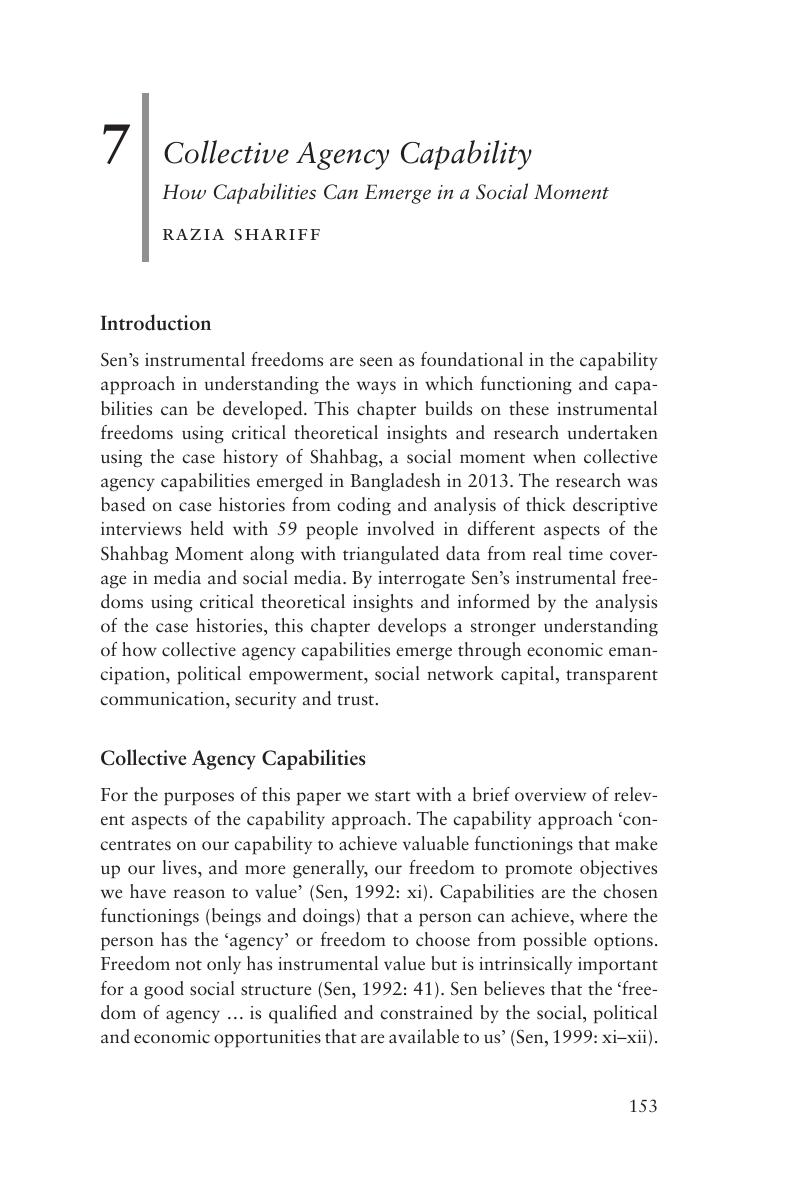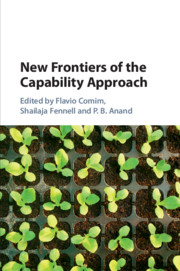Book contents
- New Frontiers of the Capability Approach
- New Frontiers of the Capability Approach
- Copyright page
- Contents
- Figures
- Tables
- Contributors
- Preface and Acknowledgements
- 1 Introduction
- 2 On Sen on the Capability of Capabilities
- Part I The Need for New Foundations
- 3 Capabilities and the Common Good
- 4 Measuring the Meta-Capability of Agency
- 5 Equal Liberty, Reflective Equilibrium and Education
- 6 On Epistemic Diversity, Ontologies and Assumptions in Capability Approaches
- 7 Collective Agency Capability
- Part II The Operationalisation Frontier
- Part III The Application Frontier
- Part IV The Housing and Urban Frontier
- Part V The Education Frontier
- Author Index
- Subject Index
- References
7 - Collective Agency Capability
How Capabilities Can Emerge in a Social Moment
from Part I - The Need for New Foundations
Published online by Cambridge University Press: 08 October 2018
- New Frontiers of the Capability Approach
- New Frontiers of the Capability Approach
- Copyright page
- Contents
- Figures
- Tables
- Contributors
- Preface and Acknowledgements
- 1 Introduction
- 2 On Sen on the Capability of Capabilities
- Part I The Need for New Foundations
- 3 Capabilities and the Common Good
- 4 Measuring the Meta-Capability of Agency
- 5 Equal Liberty, Reflective Equilibrium and Education
- 6 On Epistemic Diversity, Ontologies and Assumptions in Capability Approaches
- 7 Collective Agency Capability
- Part II The Operationalisation Frontier
- Part III The Application Frontier
- Part IV The Housing and Urban Frontier
- Part V The Education Frontier
- Author Index
- Subject Index
- References
Summary

- Type
- Chapter
- Information
- New Frontiers of the Capability Approach , pp. 153 - 176Publisher: Cambridge University PressPrint publication year: 2018
References
- 4
- Cited by

